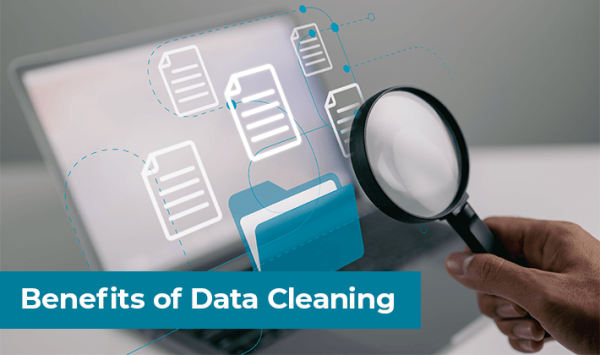A dataset’s flaws, inconsistencies, and inaccuracies are found and fixed through the process of data cleaning, sometimes referred to as data cleansing or data scrubbing. It is an important phase in the management and analysis of data because reliable, accurate, and high-quality data are necessary for making defensible judgments and gaining insightful knowledge.
In this post, we’ll look at the top benefits of data cleansing and explain why it’s essential for any business or person using data.
Benefits of Data Cleaning
1. Enhanced Data Consistency
The uniformity and standardization of data across many sources and databases are referred to as data consistency. Inconsistent data might delay integration attempts and cause confusion and analysis errors.
By harmonizing formats, units, and naming conventions, data cleaning produces a more uniform dataset that can be smoothly incorporated for thorough analysis.
2. Improved Data Accuracy
The improvement in data accuracy is the benefit of data cleansing that is most immediately visible. Many times, data from different sources contains mistakes including misspellings, duplicate entries, and missing numbers.
You should make sure that your organization’s data is more accurate and dependable by spotting and fixing these problems throughout the data cleaning process, which will result in more reliable analytics and decision-making.
3. Increased Productivity
By streamlining the data preparation process, data cleansing helps you to save time and effort. Without cleansing, you could have to spend a lot of time fixing mistakes and discrepancies, which would lower your productivity.
Organizations may speed up the overall data analysis process and concentrate on producing important insights by devoting effort to data cleaning upfront.
4. Enhanced Data Completeness
Filling in missing numbers and maintaining data completeness are both parts of data cleaning. Incomplete datasets may produce skewed findings and false conclusions.
Data cleaning ensures that datasets are more complete through a variety of approaches like imputation and data integration, providing a more thorough view of the subject under research.
5. Better Decision-Making
Clean, high-quality data is an important resource for decision-making. Decision-makers can trust the insights generated from data that is reliable and consistent, which enables them to make more educated decisions.
For your organizations to achieve a competitive edge and efficiently adapt to shifting market dynamics, data-driven decision-making is becoming increasingly important.
6. Better Customer Relations
To fully understand clients and their interests, clean data is crucial. Businesses may provide more individualized services and successfully target their marketing efforts by having correct client information.
As a result, long-lasting relationships are subsequently fostered through increased consumer satisfaction and loyalty.
7. Improved Data Profiling
Data profiling, the process of looking at data to identify its structure, quality, and patterns, is frequently used in data cleansing.
Profiling assists in finding abnormalities and outliers, which can be essential in spotting fraud or locating problem areas. Organizations may make sure that the data is in line with their goals and adheres to regulatory standards by carefully studying it.
8. Enhanced Data Security
Enhancing data security is another benefit of data cleaning. Unauthorized access and security breaches might result from duplicate and erroneous data.
Sensitive information is kept secure by reducing the danger of data leaks and unauthorized access through data cleaning and elimination.
9. Cost Savings
Data cleaning could need an initial time and resource investment. On the other hand, it may result in significant cost reductions over time. Clean data lowers the possibility of expensive mistakes, misunderstandings, and poor marketing initiatives. Organizations can also avoid fines that might be imposed for breaking data regulations.
10. Compliance and Regulation
Data cleansing is essential to ensuring compliance with numerous data protection and privacy laws, including the Health Insurance Portability and Accountability Act (HIPAA) and the General Data Protection Regulation (GDPR).
Organizations can prove their dedication to following these rules by preserving correct data and avoiding potential legal ramifications.
Conclusion
For any organization, data cleaning is an indispensable process. It has numerous benefits including improved accuracy, consistency, decision-making, and data security. With clean and accurate data you can make informed decisions and uncover the full potential of your business.





